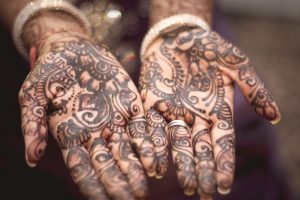By Arshia Malik
There is no end to the hypocrisy of Muslims. On the one hand, every time, a daughter is born, the only thing that looms large in the minds of the subcontinental Muslims is the daughter’s marriage. From birth onwards, they tend to see the female offspring as somebody to shove off the minute she is of the ”proper marriageable age” which can be anywhere from 15 to the ‘old maid’ 28. At every waking hour the talk around the home is centered around the ”dowry” they will have to pile up for an event which may or may not happen.
Of course, this brings with it other manipulations regarding the choice of groom, his caste, creed, and sect, but that is a discussion for another day. Meanwhile, the first-born daughter or subsequent siblings are forever sexualised by either the ”hijab” at a young age or the countless restrictions placed on their movements, their attire, even their thoughts.
The subcontinent has an interesting phrase regarding daughters, depicted in old Bollywood movies of the 80s and 90s: “Daughters are mere guests, they have to go some day.” Nothing can be as starkly devastating for a female to be kept reminding that all of this belongs to her brothers. In the rare event of a single daughter, is she ever left with some internal sense of self-esteem and economic security.
Muslim girls are constantly berated for being women while growing up. That parental flaw has parallels in Hindu society too as well as Christians and Sikh denominations as far as my own experiences and shared confidences by acquaintances, subjects and friends are concerned. What makes the admonishment of Muslim girls diabolical is that this attitude finds sanction in many a dubious ”Hadith” or Sayings of the Prophet. The infamous Surah An-Nisa [4.34] goes like this:
Men are in charge of women by [right of] what Allah has given one over the other and what they spend [for maintenance] from their wealth. So righteous women are devoutly obedient, guarding in [the husband’s] absence what Allah would have them guard. But those [wives] from whom you fear arrogance – [first] advise them; [then if they persist], forsake them in bed; and [finally], strike them. But if they obey you [once more], seek no means against them. Indeed, Allah is ever Exalted and Grand.
I don’t need to refer to the habitual argument brought by apologists for these interpretations to say that ‘beatings’ means lightly and that too with a feather or the ‘miswak’ (twig). Believe me, once the sanction is in the head, it is anything but light!
But then misogyny, wife beating or the inferior status of women finds sanction in the Manusmriti too. Manusmriti or ‘Laws of Manu’, also known as ‘Manav Dharmashastra’ is the earliest traditional literature in Hinduism. According to the Hindu tradition, Manusmriti is a text which includes Lord Brahma’s wisdom. However, the text is contradictory in itself and there are numerous flaws when you take into consideration today’s contemporary society.
Garuda Purana 1.109.31: Wicked persons, artisans, slaves, defiled ones, drums and women are softened by being beaten; they do not deserve gentle handling.
Tulsi Ramayana, Sundar Kanda, Doha 58.3: A drum, a rustic, a Shudra, a beast and a woman all these deserve to be beaten up.’
Two religious philosophies, sacred injunctions and divine admonitions regarding women — centuries apart, in fact, millennia — put together and it is easy to see where the misogynistic subcontinental attitudes towards women come from. One homegrown and one imported by wars and invasions and the Rishi order. Despite that, Hindu philosophy has strains of atheism, due to which it has undergone a huge reformation and is still being modified.
Since the Reform Movement of Indian Nationalists like Raja Ram Mohan Roy and the British administrators of the 1800s to the present, Hindu personal laws are constantly being challenged: the Hindu Marriage Act of 1955; the Dowry Prohibition Act of 1961; the recent 2016 Supreme Court ruling of married daughters being equal caretakers of parents as the sons; and so on.
But the Muslim Reform Movement as usual faces hindrances especially in the form of the mullahs and the morality brigade comprising of regressive left supporting foreign and local women. The current national debate to ban the triple talaq and the demand for a Uniform Civil Code is already being painted as a conspiracy of the right wing Hindutva party, instead of an attempt for reforms and checks on all the personal law boards of respective religions in India.
Reading from authors across the Middle East, the Mediterranean, and the Western Muslim zones, you come to realise that the upbringing of daughters in the Muslim world is the same. Be it the Turkish Elif Shafak’s Black Milk or The Bastard of Istanbul, the Iranian Azar Nafisi’s Reading Lolita in Tehran or Marjane Satrapi’s Persepolis, the Somalian Ayaan Hirsi Ali’s The Caged Virgin and Infidel, the Bangladeshi Tahmima Anam’s The Good Muslim, and many more.
This “burden of a daughter” is attributed to another dubious “hadith” — that of the Prophet lowering his head when he heard a daughter had been born to him. My take is that he was simply offering gratitude in silence, while the onlookers interpreted it as his acceptance of fate. This is due to another proverb/hadith I have grown up hearing all the time: “A daughter is mercy, a son is mischief (my rudimentary translation of the Kashmiri ‘raahmat’ and ‘zahmat’).”
I also recall my mother reminiscing about how when she had my younger sister, she had wept uncontrollably and our maternal grandmother Ammi had offered to adopt her and bring her up. I often marvel at how this tale, oft repeated, must have chipped away at my sister’s self-esteem by our thoughtless and ignorant mother.
Today there is immense compassion for our mother because of the miscarriages she underwent (I suspect some were forced abortions in the 80s, as soon as the now illegal determination of the sex of the foetus was done) in the obsessive desire of our father to have a son.
Decades later, there is pride too — in our parents, our respective sons, and husbands and most importantly our own selves for having gone and done what no other male member of our immediate and extended family has done or been capable of. Self-taught, self-supporting, earning contributors and fiercely independent mothers to bring up secular sons.
I give more credit to my sister’s immense courage in the face of many odds such as our parents’ separation of almost two decades, financial dependence on relatives, sitting for a pre-medical test in the general category twice after the first unsuccessful attempt and making it in the open merit category, battling bipolar/depression in the last year of pre-med school, all the while sustaining and resisting our father’s mental and emotional torture that he would inflict on us just to get even with his brothers-in-law because of their support in giving refuge to their sister (our mother) fallen on bad times.
Mine is just a humble contribution of an honest day job where I nurture young minds before they step into the big, bad world increasingly becoming intolerant of diversity. The East/Orient has to change its attitude towards its daughters. I extend it now to encompass transgenders and those feminine men who do not fit the stereotype of macho, rational, cold and emotionless men for stay-at-home-dads, home-chore-sharing husbands, cooks, and generally sensitive men who like to stay behind their competitive wives or mothers or daughters and sisters and do not believe in the traditional roles of men and women constructed by society.
The female weak – male strong perception has to get updated to the evolutionary biological reality of nature, wherein every sex and species is part of the environment, whether destructive or constructive but an equal part nevertheless filling some scientific purpose. It is the only chance that our self-destructive society has if it wants to get rid of radicalism, extremism, and Islamism mainly.
Arshia Malik is a Delhi-based writer, blogger and social commentator with focus on women issues and conflicts in societies with a particular focus on South Asia. She makes her living as a school teacher and is an avid collector of literature.
Follow her on Twitter.


